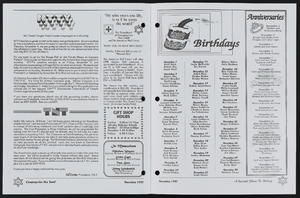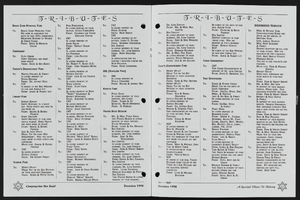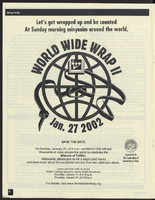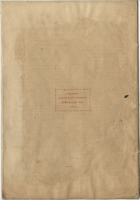Search the Special Collections and Archives Portal
Search Results
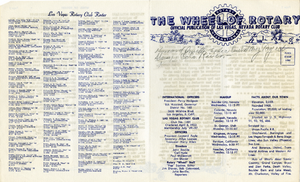
The Wheel of Rotary Las Vegas Rotary Club newsletter, February 23, 1950
Date
Archival Collection
Description
Text

Nancy Brune oral history interview: transcript
Date
Archival Collection
Description
Oral history interview with Nancy Brune conducted by Monserrath Hernandez and Rodrigo Vazquez on August 21, 2019 for the Latinx Voices of Southern Nevada Oral History Project. In this interview, Brune recalls her childhood and her experiences growing up in Austin and San Antonio, Texas to a Mexican-American father and British mother. She often identifies herself as tejana. Brune has lived in Las Vegas, Nevada since 2007 and is the Executive Director of the Kenny Guinn Center for Policy Priorities. Brune is a graduate of Harvard and has a doctoral degree from Yale University. She and her husband, Richard Boulware, who is a born and raised Las Vegan, have three children.
Text
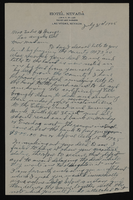
Correspondence, Levi Syphus to Sadie George
Date
Archival Collection
Description
Text
Nellis Air Force Base Photograph Collection
Identifier
Abstract
The Nellis Air Force Base Photograph Collection contains photographs of Nellis Air Force Base and its predecessor, the Las Vegas Army Airfield, as well as photographs of Rockwell Field and McCarran Airport in Las Vegas, Nevada from 1926 to 1980. The materials contain photographs of military aircraft, hangars, buildings on the base, and aerial photographs of Las Vegas and the surrounding area. The materials also include photographs of the entrance of McCarran Airport, U.S. Senator Pat McCarran, and a mail plane arriving at Rockwell Fields in 1926.
Archival Collection

